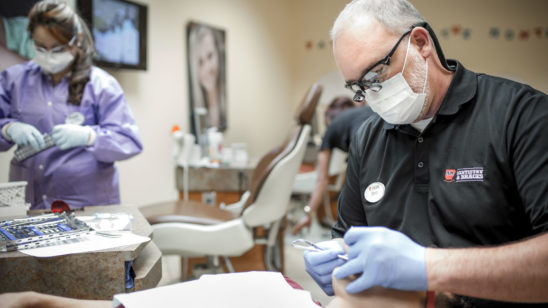Alabama
The state requires an average of more than $300 in fees and nearly half a year (142 days) of training and on the job experience. Alabama licenses 151 occupations, which in turn affects more than 430,000 workers across the state. In fact, the Alabama Policy Institute estimates that license renewals cost workers and consumers (who must pay for licensing through increased prices of goods and services) nearly $45 million annually.
But how might this affect you?
If you’re looking to go into animal training or bartending, Alabama is one of the few states that requires licenses for those professions (and you’ll even have to complete a bartending exam to get licensed in the state). Although the requirements aren’t too stringent, they’re worth looking up and preparing for, as you might face small fees and tests.
Preschool teachers, athletic trainers, and vet technicians––some of the most commonly licensed occupations––must pay over $400 in fees and complete several years of school in Alabama. Cosmetologists, barbers, skin care specialists, and makeup artists must complete more than 1,000 hours on the job before getting fully licensed. Even shampooers at salons must pay a $75 licensing fees before getting to work.
Some of the less cumbersome licensing requirements include ones for truck drivers, bus drivers, and EMTs, all of which will still find themselves paying around $100 in fees and completing several exams.
If you’re a resident of Alabama, see how the state’s licensing requirements affect your profession.
If you’re interested in learning more about the reasoning behind occupational licensing and efforts to reform Alabama’s licensing system, head over here.
If you’re interested in some of the estimated statewide costs, go here.
And if you wish to contact your state representatives, go here.
Tennessee
Tennessee licenses more than two-thirds of all lowest-income professions and ranks as one of the most onerously licensed states of all. In 2016, though, the Tennessee General Assembly passed a groundbreaking bill (The Right to Earn a Living Act) that allows the state legislature to review occupational licensing laws and work to scale them back or alter requirements that no longer make sense, so change is underway. Still, the process is slow-moving, and many old requirements are still in place.
For example, dental assistants, locksmiths, and bartenders must all be licensed in Tennessee, but only a few other states require similar certification. Auctioneers must complete more than a hundred days of training and two years on the job before they can be certified in their field.
Fire alarm installers must also face a disproportionately long amount of job training––two years of education, four years of experience, and nearly $1,000 in fees are necessary for people looking to go into that occupation. Tennessee has particularly stringent requirements for those who are entrusted with the safety and wellbeing of others, namely fire alarm installers, security system installers, and midwives.
Barbers, cosmetologists, manicurists, makeup artists, and skin care specialists must all pay around $200 in fees and clock around 600 to 1,500 hours, depending on the job’s specifics. Hair braiders in Tennessee must pay $140 in fees and spend 300 hours studying to enter their profession.
Interestingly, in Tennessee, taxidermists must pay $122 in licensing fees, and travel guides must pay $150.
If you’re interested in how occupational licensing affects your state, go here.
If you’re interested in learning more about Tennessee’s specific requirements, go here.
If you’re interested in learning more about The Right to Earn a Living Act, you can read it here.
If you’re interested in learning more about the 12 occupational licenses most in need of reform, according to Tennessee think tank, The Beacon Center, go here.
If you’re interested in contacting your representatives and letting them know how licensing affects you, head over here.


